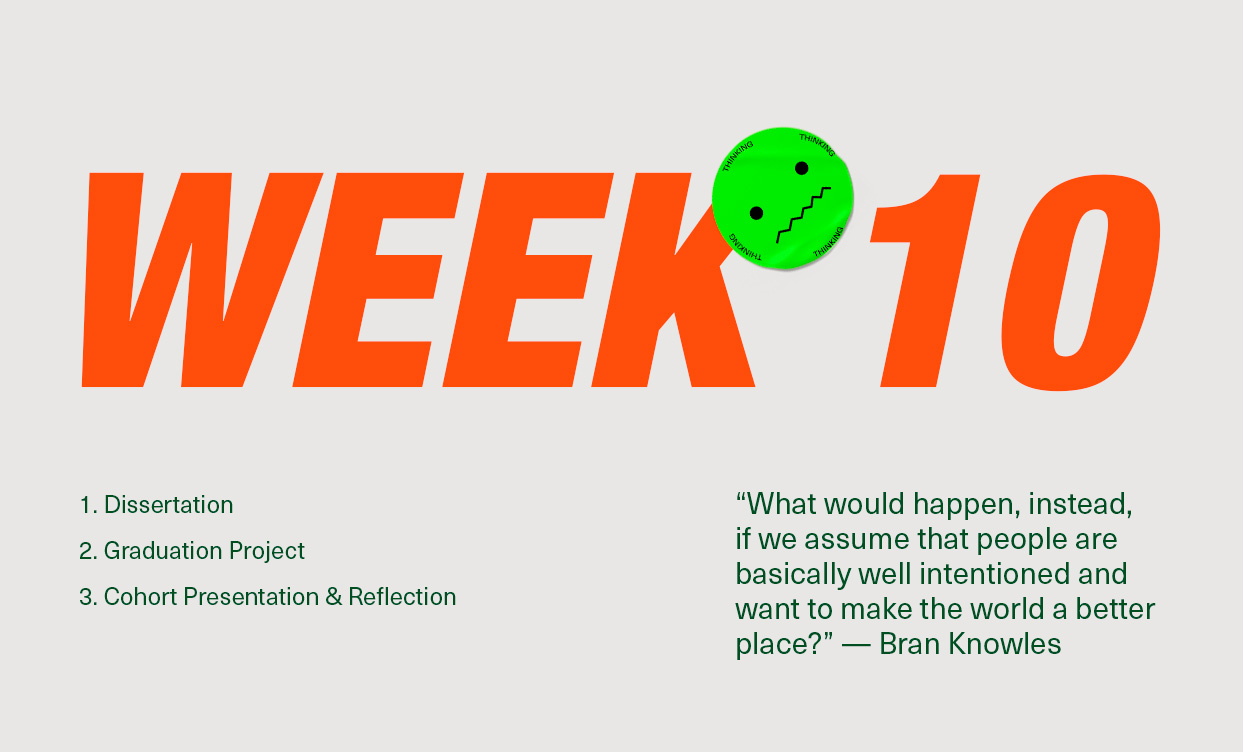- Week 10
- October 17'22

1.1 Dissertation — Excercise
(1) Action Research (2) Rigourous testing & reflection (3) Concentrating on 1 thing only? Because the topic has potential to be super broad but they are looking at specifically design friction. (4) Adaptation. No one paper are the same. (5) Images are useful to illustrate some points. Pay attention to photograph quality.Make sure images are clear and help reader to understand the points.
Making sense of the circularity of climate change and its impacts?
.png)
1.2 Sustainable HCI
Finally finding the reason as to why I felt my ideas felt hollow!
Critical lens on persuasive sustainability: How interaction design within HCI has tackled climate change There has been a growing number of works within human-computer interaction (HCI) research that aims to raise awareness around climate change. Sustainable HCI (SHCI) refers to a body of work within the field of HCI that is focused on designing systems in order to reduce negative environmental impact or encourage sustainable behaviors. There is a prevalence of persuasive themes in sustainable HCI. Persuasive sustainability systems typically aim to heighten awareness of an individual in regards to their environment by visualizing or quantifying the consequences of their daily habits, which is often times addressed through eco-feedback technology as a popular form of study . This approach stems from the fact that some people remain unaware of the impact of their everyday actions towards climate change because it does not naturally translate into feedback from the environment. A critical analysis of the genre of SCHI focused on persuasion was done by Brynjarsdóttir et al. as the authors underline three main themes – sustainability as resource management, indirectly influencing individual’s behavior, and sensing and reporting information (Brynjarsdóttir et al 948). While the three highlighted themes are not homogenous in their approach, it is clear that there is an overwhelming focus on changing individual consumption or habits by means of making them more conscious of their activities. The authors critiqued this angle due to its seemingly modernist approach that narrows the framing of sustainability around efficiency, calculability, predictability, and control.
"Framing of sustainability as optimization of a simple metric places technologies incorrectly as objective arbiters over more complex issues of sustainability" — Hrönn Brynjarsdóttir et al.